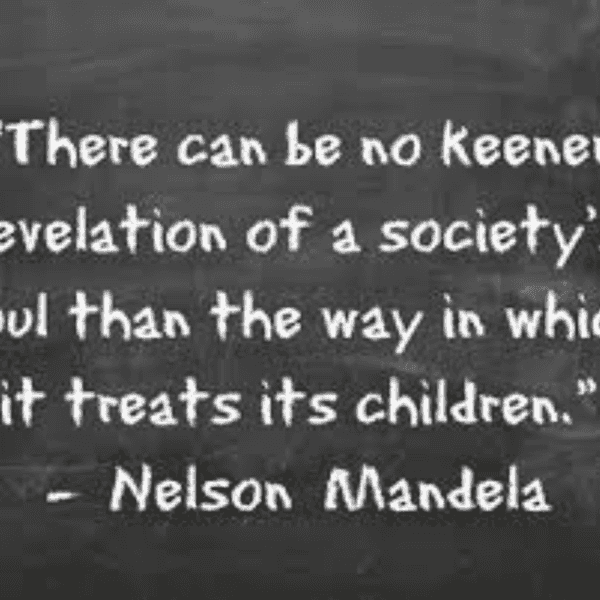Introvert and extrovert are the names given to two of the basic personality types based upon their characteristics. No two people are the same, and people tend to have different physical and mental characteristics. In general, a person can be either outgoing or reserved, who could enjoy more when alone. In fact, it is more of a continuum than two separate, exclusive personality types. However, for the purpose of convenience, people are divided into these two categories. Knowing the differences between extroverts and introverts is a good way to know about one’s basic nature and act accordingly.
Who is an extrovert?
One quality that distinguishes extroverts from introverts is that they like the company of others. In fact, they feel energized when they are surrounded by others. This is one quality that makes extroverts successful businessmen, managers, salespersons, and others found in public life. These are people who are comfortable in the presence of others and, in fact, put others at ease by their excellent communication skills. However, there is a price for being so gregarious that extroverts pay at times. These people wilt easily and fade when kept alone like sunflowers when they are put in a shade. This is why these people reach out for their phones to SMS or talk to friends as soon as they are alone. Extroverts find being alone boring and look for exciting activities. They are found doing exercises and engaging in outdoor activities when they are not with friends or socializing in parties. Extroverts are seen having clashes with other extroverts as they all want to hog the limelight and want to be the center of attraction. Extroverts love to live life in a fast lane and like varied jobs that are interesting and dislike slow paced jobs. Though they are glib talkers, they often land themselves in trouble, in social relationships, as they speak up before they think. During ceremonies and events, extroverts take up center stage and often happen to be very good organizers of parties and events. Extroverts are a people's people. They are at their most energized when they have others around them. A cozy night in for them would probably involve about half a dozen friends or family as well as yourself. They love people. Some will love them with compassion and a genuine interest, others because they offer the opportunity to have an audience. Extroverts can be warm, funny, energetic, the life and soul of any party. They can also be very demanding, liking center stage, and prepared to do almost anything to keep the spotlight on them. For many this is no problem because they can be charming and good company. They find it easy to establish contact with new people, the kind who walk straight into a party and start chatting to whoever is in the kitchen. By the end of the evening they’ve probably met at least three ‘really nice people’ who have been invited to dinner, but have been too busy to say more than three sentences to their partner. Extroverts need stimulation or they become bored quite quickly. Repetitive tasks will be a turn off unless they are fun or have some kind of payoff – like attention. Their concentration span, particularly in solitary pursuits, tends to be shorter than introverts. They are happy to share their thoughts, even if they have not been thought through fully. Extroverts tend to have a wide circle of friends, and will put a lot of energy into those friendships which are ‘current’.
Who is an introvert?
Introverts are exact opposites of extroverts as they are comfortable when they are alone. In fact, their energy seems to be consumed when they are interacting with others. Introverts like to be in the company of close associates or family members. Introverts would prefer reading a book rather than talking to others on a phone when alone. It is the leisure time that introverts prefer spending alone and with family or close friends rather than partying or socializing with others. An introvert is more comfortable relaxing all by himself rather than moving in his friend circle. Introverts love some people. Some introverts will love only a very few people, and then only in measured doses which they need to control – so the in-laws dropping in unannounced will be stressful, even if they aren’t interrupting anything. Generally introverts don’t like attention from a crowd unless they are very familiar with everyone. They can be content in a bar with a group, but will mainly be the ones quietly listening, the ones who usually don’t say very much but when they do often deliver the killer line. Just because their participation is low does not mean they are not having a good time, or even that they are shy. Shyness is usually the result of a fear connected to social intercourse which originated from a negative emotional event when they were young. Shyness can be found in extroverts as often as introverts, it is just that the behaviour of an introvert is often similar to someone who is shy. A shy extrovert can be the one who is silently longing to get up and sing ‘My Way’ on the karaoke but doesn’t dare, until they are very drunk or have been dragged on stage. A real introvert may not want to sing no matter how many drinks they’ve had and nothing will drag them up. Introverts like to keep their ideas to themselves until they have thought them through. They can be very uncomfortable being made to speak about something they are not sure about. ‘Knocking an idea about’ is not there way of figuring something out, in fact it will distract and even confuse them. In relationships they may not be forthcoming with their feelings, particularly verbally. Often they communicate better in letters and cards, or in gestures. I have heard on many occasions partners saying something like “He writes the loveliest things when he sends me cards, but he can’t mean them because he never says them to my face.” Oh yes he does, but on the wrong side of his face (the in-side.).
Psychological Factors: Introverts showed increased blood flow in the frontal lobes, the anterior thalamus and other structures associated with recalling events, making plans and problem-solving. Extroverts, on the other hand, displayed more activity in the posterior thalamus and posterior insula, regions involved in interpreting sensory data.
What is the difference between introvert and extrovert?
- Extroverts and introverts are two opposite personality types.
- While extroverts are social butterflies, introverts like to be alone and find their energy sapping when in the company of others
- Extroverts enjoy social events and parties and, in fact, they energize by being in the company of others
- Extroverts are found more in our population than introverts, and they are supposed to be normal while introverts are often misunderstood
- It is when one of the spouses is introvert in a marriage that problems start as it is hard for the mates to understand each other
Misunderstandings between extroverts and introverts.
Extroverts often describe introverts as boring ‘stick in the mud’s’, while they are themselves described as superficial and loud. These perceptions can have a big effect in any kind of relationship; Here is how it often works; extroverts get lonely when they are not with people, and often need a variety of people to maintain their interest. Introverts can get lonely when they are surrounded by people- especially if they don’t know them. It is wrong to think of introverts as being antisocial. They can be as gregarious in their way as an extrovert. It is just that their way will be different. Socialising for them will usually involve people known to them, with conversation occurring in small groups, often with the opportunity available for them to be observers rather than participants. Extroverts in a relationship with an introvert need to realise the importance of privacy. For them keeping open house might hold the possibility of stimulating friends dropping by, for their partner it might feel like an invasion – even if they are stimulating friends. So while the extrovert is sociable the introvert is territorial. Introverts need space; private places both in their environment and in their mind which they will defend strongly.
Introverts in a relationship with an extrovert need to realize the importance of stimulation. Their partner’s focus is on the world outside of them, and as you have read already, sameness becomes invisible. An unchanging environment to an extrovert quickly becomes boring because of its lack of stimulation. It does not mean they are bored of you, only that there is not enough going on. Some variation is needed, even some spontaneity in the social calendar.
Extroverts are much more of an open book who believe a trouble shared is a trouble halved. Introverts probably think that a trouble shared is just causing another problem. You can probably see how silence on the part of the introvert can be misinterpreted by the extrovert partner: As with all opposites, there is the potential for each partner to balance the other and for the relationship to be mutually fulfilling. It depends on each person respecting the other and not burdening each other with labels about behaviour which only really describe your values about that behaviour, not any intrinsic goodness or badness it may have.
While extroverts will often be happy to talk about themselves – in fact try stopping them – including their problems. To extroverts an introvert will appear private, even secretive. They will not usually talk about their problems until they have had the chance to ‘work things out in their heads’. This will be the time when they appear the most withdrawn. You will often find these two types in relationships, and they often complement each other: One brings the other ‘out of their shell’ – but remember they won’t always want to come out and play – while the introvert can ‘settle them down’. But don’t restrict them too much or they will get bored. 75% of the population is extrovert, while 25% is introvert. It explains a lot about our culture, and everything about game shows.
We are all humans, but it doesn’t mean that we all have a similar reasoning. In fact, when it comes to how the brain functions, there are two dramatically different models – the introvert, and the extrovert. The differences between introverts and extroverts can be astonishing, but not all of them are true. In many cases, shy people might end up getting classified as introverts, while those people who love to party are assumed to be extroverts. Read on to better understand the primary aspects that differentiate these two personality types.
1. Introverts and Extroverts Have Different Ways of Processing Circumstances
One of the biggest differences between introverts and extroverts is how they process circumstances. Though they might seem quiet, introverts are internal processors, as their thoughts are continually circulating, evaluating and concluding. On the other hand, extroverts are outside thinkers, and they clearly express opinions, thoughts or impressions using words, without fearing what others might say. As such, introverts might lack the communication skills of extroverts, which differentiates them at a great deal.
2. Introverts Do Not Like Change
Another important difference between these two personality types is that introverts do not like and cannot easily accept change. In most cases, they will always have a plan, a set of goals they need to accomplish, and they can barely accept straying from these goals and plans without feeling uneasy or overwhelmed. On the contrary, extroverts are more spontaneous, and they can adapt to change easier than introverts. To summarize this point, introverts are task-oriented, while extroverts are more people-oriented.
3. Extroverts Over-Share Their Thoughts and Innermost Feelings
While introverts do not like to share their inner world with a lot of people, extroverts have the tendency to over-share their thoughts, feelings and other aspects of their lives with several friends. Unlike introverts, who usually have only one or two close friends, extroverts have many more people they confess to, and though their relationships might be sometimes quite superficial, this type of people might still be inclined to have a few closer buddies as well.
4. Introverts Are Simple and Practical
One of the easiest ways to differentiate an introvert from an extrovert is their appearance. In almost all cases, introverts will go for neutral tones and decent clothing that is simple and practical, keeping flamboyant outfits out of their lifestyle. In addition, introverts prefer clean, minimalistic home or office spaces over modern designs. Extroverts, on the other hand, like flashy colors that make them easily noticeable in the crowd, and they tend to choose outfits that are more eye-catching. Obviously, their living and office spaces are cozier and cluttered, having a familiar feel that makes them irreplaceable.
5. Extroverts Are Energized by Constant Interaction
To wrap up the list of differences between these two personality types, extroverts are energized by constant interaction with family and friends, as this makes them feel more comfortable and rejuvenated. Introverts, on the contrary, feel more comfortable and familiar reading a book or doing tasks that challenge their minds without necessarily involving their bodies. Though this does not energize them, it makes them be more active than normally, which clearly differentiates them from extroverts.
Though these two personality types might be clearly delimited by specific traits and behaviors, one person cannot possibly fit into only one of them. Some introverts might feel actually comfortable speaking in front of other people, while extroverts might not. Alternatively, some introverts might like colorful clothing and more contemporary interior designs, while extroverts might prefer neutral tones and neat designs. But introverts are not better than extroverts, or the other way around – they are just different. If we all were the same, whether introverts or extroverts, we would certainly miss the differences that make us special.





















